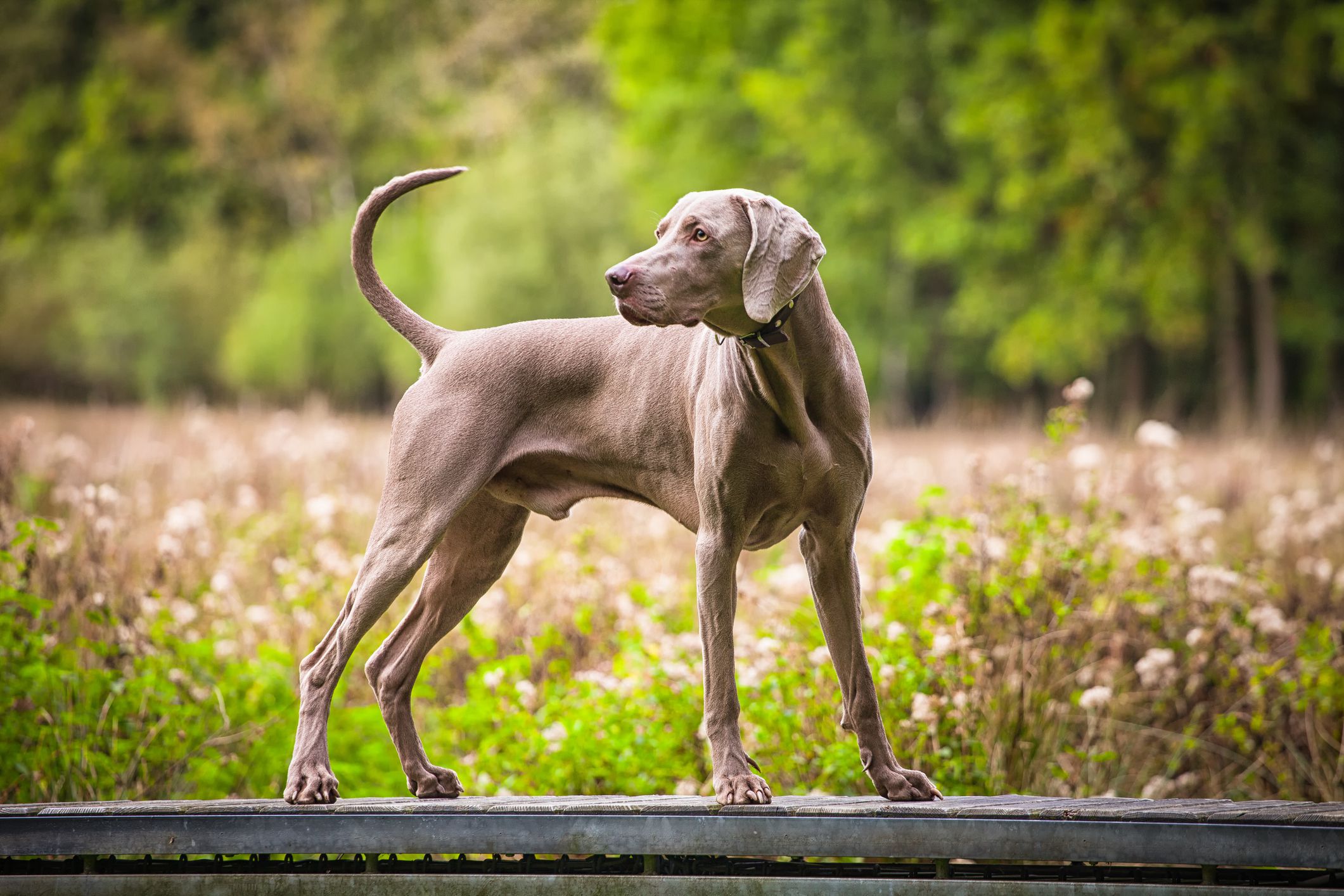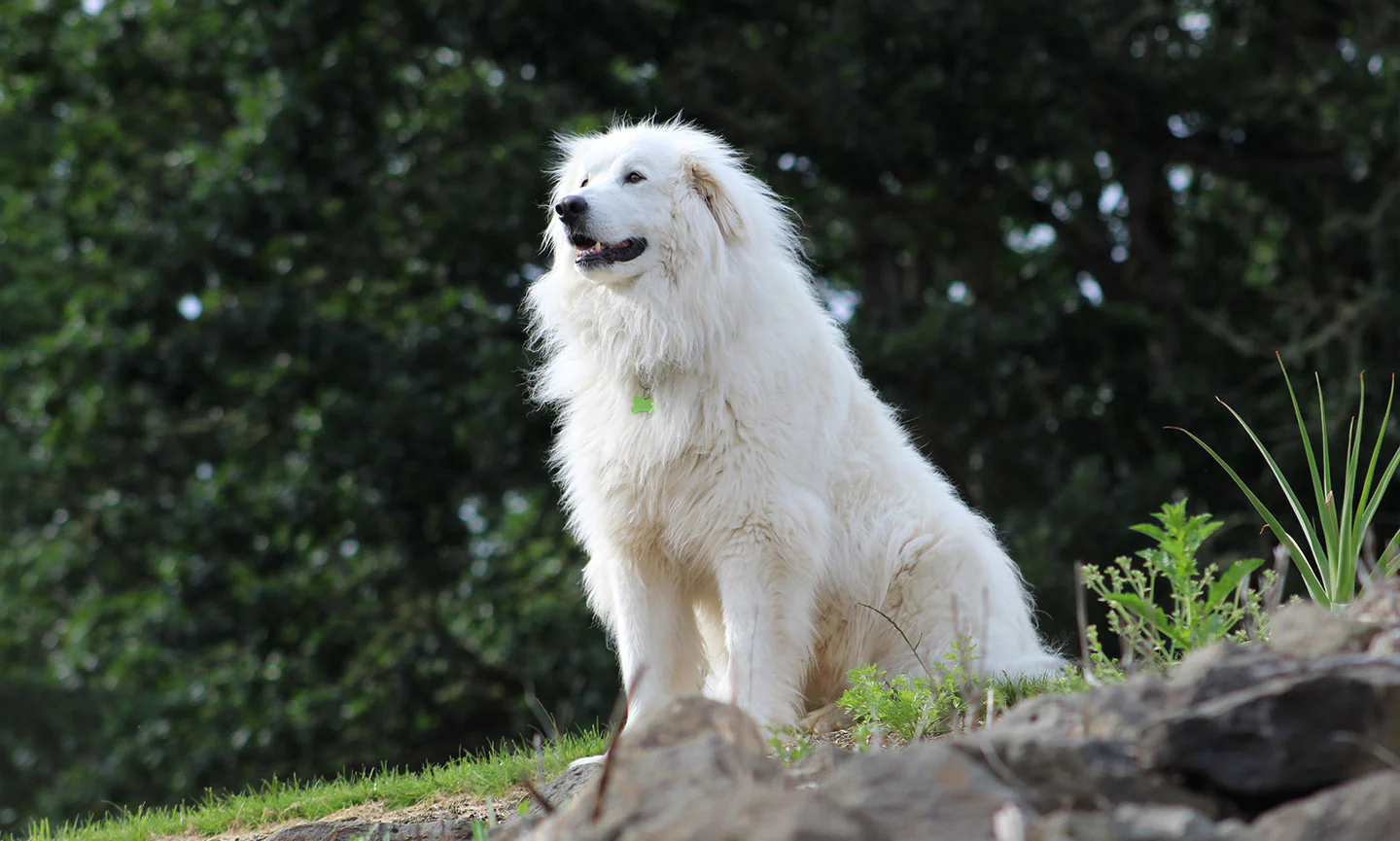Introduction
The Weimaraner is a large and athletic breed of dog that originated in Germany. They were originally bred as hunting dogs, specifically for tracking and retrieving game such as deer and bear. Weimaraners are known for their striking silver-grey coat, which is short and sleek.
In addition to their hunting skills, Weimaraners are also known for their intelligence and loyalty. They are a highly trainable breed, making them well-suited for obedience and agility competitions. However, due to their high energy levels and need for exercise, Weimaraners require a dedicated owner who can provide them with plenty of physical and mental stimulation.
Weimaraner Temperament
Weimaraners are known for their intelligent, energetic, and loyal personalities. They are highly active dogs that require plenty of exercise and mental stimulation, and can become destructive if left alone for long periods of time. Weimaraners are also known to be affectionate and loving towards their family members, but may be reserved or aloof with strangers. They are often described as “velcro dogs” due to their strong desire to be close to their owners.
Aggression

Weimaraners are generally friendly and loyal dogs, but they can exhibit aggressive behavior in certain situations. Aggression in Weimaraners can be caused by a lack of socialization, fear, or perceived threat to their family or territory. It’s important to seek professional help to address the underlying causes of aggression and develop a plan for managing and modifying the behavior. With proper socialization, training, and management, aggressive behavior in Weimaraners can often be prevented or minimized.
Health and Lifespan
The reported lifespan range of Weimaraners is typically between 10 to 13 years. However, as with any breed, individual factors such as genetics, diet, exercise, and healthcare can play a significant role in determining a dog’s lifespan.
Food for Weimaraner

When it comes to feeding your Weimaraner, it’s important to choose a high-quality dog food that meets their nutritional needs. Look for a food that contains a high percentage of protein, as Weimaraners are active dogs that require plenty of muscle-building nutrients.
It’s also important to choose a food that contains a balanced ratio of carbohydrates and fats, as these nutrients provide the energy needed for exercise and other physical activities.
Training for Weimaraner
To train a Weimaraner, use positive reinforcement techniques such as treats and praise, be consistent in your training methods, provide regular exercise and mental stimulation, and consider enrolling them in obedience training classes to improve their behavior and responsiveness to commands. Patience, consistency, and positive reinforcement are key to successfully training a Weimaraner.
Conclusion
In conclusion, the Weimaraner is a versatile and loyal breed that excels in a variety of roles, from hunting companion to loving family pet. They are highly trainable and intelligent, but also require a dedicated owner who can provide them with plenty of physical and mental stimulation. With proper socialization, training, and management, the Weimaraner can make a wonderful addition to any household. If you’re considering adding a Weimaraner to your family, be sure to do your research and choose a reputable breeder who prioritizes the health and well-being of their dogs.


